28, February 2018
Yaounde: Issa Tchiroma arrest in the offing 0
Cameroon’s minister of communication, Issa Tchiroma, is very likely to be arrested one of these days. The government spokesperson who has been a mouthpiece for Cameroon’s president, Paul Biya, is facing a long jail time as his name has appeared among those who are being accused of embezzling funds and misusing fuel coupons at the Cameroon Radio and Television Corporation (CRTV).
Mr. Tchiroma has been singing the president’s praises for years in the pious hope that he will not be brought to book in case he finds himself in tough situations in the country. But as the trial of former CRTV General Manager, Amadou Vamoulke, drags on, more suspects are being roped in. Mr. Vamoulke has decided that he will not go down alone. He has therefore provided a long list of people who willingly participated in the looting of state funds.
Early this week, some seven CRTV staff were dragged to the Yaounde maximum security prison where they are expected to answer for their role in the misappropriation of CRTV funds and misuse of fuel coupons in the coming months. Mr. Tchiroma’s name has popped up and this has left the government spokesman with lots of butterflies in his stomach.
It is alleged that most of the fuel coupons were issued to friends and girlfriends of CRTV staff. It is also alleged that Mr. Tchiroma handed a huge chunk of these coupons to his harem of women who have done a good job of misusing them.
It should be noted that as the country’s minister of communications, Mr. Tchiroma is the CRTV Board chairman and he surely has a few questions to answer about the missing money and millions of dollars in fuel coupons alleged to be misused.
The 70-year-old Tchiroma has once spent 8 years in jail for his role in the April 1984 coup d’état that almost toppled Mr. Biya. But the news that he will soon be back in the dock and possibly back to jail has triggered an illness that may result in Mr. Tchiroma’ s evacuation abroad for medical treatment.
While arrangements for his evacuation are under way, the government is making sure that Mr. Tchiroma does not flee while on medical evacuation like the former Minister of Agriculture who is currently living in the Washington DC area after pretending that he was dying of an unknown ailment. He used his medical evacuation to escape the grip of the “lion-man” who was determined to hand him a long jail term for embezzlement.
It should be noted that Mr. Tchiroma, Laurent Esso and Fame Ndongo, are the ministers who have caused the Southern Cameroons crisis to escalate and it has gotten to levels that are today almost impossible to address as Southern Cameroons separatists are fighting hard to restore their independence.
Over the last two months, the crisis has led to the killing of over 500 civilians and more than 300 soldiers. The government of Cameroon has however been seeking to hide the truth from the public. It holds that if the Francophone majority gets wind of the number of army soldiers killed, it might also rebel against a government that has turned down all appeals for a peaceful and negotiated settlement.
However, relatives of Francophone soldiers killed in the jungles of the North West and South West regions have begun calling for a release of a comprehensive list of soldiers who have lost their lives as a result of the crisis.
While the government is still dragging its feet on this, some private individuals are already working hard to get information from bereaved families in order to come up with a comprehensive list.
Sources close to the country’s ministry of defense have revealed that the defense minister, Joseph Beti Assoumo, is totally against the publication of such a list and he is working hard to block any efforts that might lead to the publication of such a list.
But the authors of the list, who have elected anonymity, have hinted the Cameroon Concord News Group that they will spring surprises just to prove to the government that it is hard to hide the truth in today’s world where social media and android technology are making it easy to lay hands on any information.
Meanwhile, as Cameroonians look forward to seeing Mr. Tchiroma in the Kondengui Maximum Security Prison in Yaounde where his former cabinet colleagues have taken up residence for some time now, the Southern Cameroons crisis that has put Cameroon in the spotlight for all the wrong reasons is gradually spiraling out of control. Over the last weeks, Southern Cameroonian fighters have changed their strategy from killing soldiers and gendarmes to kidnapping senior administrative officers, in the hope that they will create a huge impact on a government that is noted for its do-nothing attitude.
Over the last two weeks, the Batibo Divisional Officer and Social Affairs delegate have been kidnapped and taken to the jungle where they are living wild and rough. In Manyu Division, senior CPDM officers have had to face the wrath of Southern Cameroonian fighters. A senior official of the CPDM in the Upper Bayang Sub-division was visited and his car was burnt.
Similarly, many local chiefs in Manyu and Ndian Divisions are on the run as the people have resorted to attacking them. They are accused of being government pawns and have collaborated with the corrupt Yaounde government to rob the people of their freedom and wealth. This series of events is not only frustrating to many families, especially those of the kidnapped administrative officers, but also to the government which has been unable to put the determined Southern Cameroonian fighters out of business.
Today, many administrative officers in Southern Cameroons are living in fear. Ambazonian Tigers have struck fear into them and many are not living a normal life as they are permanently looking over their shoulders. Regardless of the heavy presence of troops in Southern Cameroons, most administrative officers hold that the government can never provide them with the type of security they need to operate normally. Besides, they understand that corruption, divisions and frustration are making it hard for the country’s defense forces to effectively play their role.
Within the military, there are different schools of thought regarding how the Southern Cameroons crisis should be addressed and this is making it hard for the government to beat a more determined Southern Cameroons army that has proven that it can punch well above its class.
These divisions and frustrations in the military can be seen in an anonymous letter written to the president by some disappointed soldiers about issues facing current efforts to roll back Southern Cameroons fighters who have been making huge gains in the North West and South West regions.
“We are advising you that there is disorder and non-compliance with the instructions given by the field operations hierarchy in the two regions in crisis. The decisions taken by the higher military hierarchy are not implemented by those expected to implement them in the field, especially in the Southwest region where the instructions of General Sali are not respected by the commander of operations, Colonel Ousmanou, who by flouting these instructions, is putting our forces at risk where they are killed by the separatists. This way of acting has already encouraged or facilitated the secessionists to kill some of our troops and seize our equipment (weapons and ammunition). During meetings of the General Staff chaired by the Manyu Divisional Officer, Colonel Ousmanou is always against everyone, sometimes urging the prosecutor of the republic to support ideas relating to the respect of human rights. He declares that the President of the Republic and his government in Yaoundé must find a political and non-military solution to this crisis and that he will never accept that a man under his command use his weapon against anyone,” the memo said.
The memo adds that “Other senior officers are engaged in maintaining and protecting the underground economy that sustains and supports the enemy camp. Colonels Ntsama and Ngongang are engaged in despicable acts that do not honor our military. They are involved in the breaking of shops in Ekok, and other localities of Manyu, carting with them freezers, money and other property. Any questions from a subordinate in this regard always result in the subordinate’s redeployment further into the zone or he is given a harsh punishment.”
This does not only reveal that there are cracks on Mr. Biya’s wall. It is also a clear demonstration that the Southern Cameroons crisis is causing the government to implode. Southern Cameroonians have succeeded to split the military and even the ruling party is gradually falling apart. Their corrupt practices are being exposed by some of theirs who have elected anonymity. The huge pain and death left by Ambazonian fighters’ attacks on the country’s military are gradually splitting the Francophone population that was for a long time indifferent to what was happening in Southern Cameroons.
Over the last three months, Southern Cameroonian fighters have been giving the country a good run for its money and this has given the government a black eye. The government, which has refused all appeals for dialogue, has seen its reputation eroded, and this is making many analysts to hold that the government will come back on its word. The government had already branded Southern Cameroonian restorationists as terrorists and based on the declarations of fascists elements within the regime, the government will never negotiate with those it considers as terrorists.
This new strategy of kidnapping senior administrative officials is designed to put an enormous amount of pressure on the aging and ailing government for it to release Southern Cameroonian leaders who had been abducted and extradited to Cameroon where they have been held incommunicado for almost two months. The extradition has angered many Southern Cameroonians, especially the fighters.
Currently, Southern Cameroonian fighters hold that the more administrative officials they hold, the greater their chances to get their leaders released. They have therefore sent word all over the place that any administrative officer operating in Southern Cameroons is a target. There are even prices on the heads of some administrative officers such the governor of the Southwest region, Okala Bilai, who has been judged in absentia by the Southern Cameroons people’s court and has been sentenced to death.
It is being secretly said that anyone who kills the southwest governor will be given about US$20,000. He is being charged with describing Southern Cameroonians as dogs and Ambazonians Tigers have clearly stated that such a crime must be punished, and death is a befitting punishment for the crime.
Another administrative officer who is in the cross-hairs of the Ambazonian Tigers is the Manyu Senior Divisional Officer who had issued a press release that caused many residents of Manyu to quit their homes to seek refuge in neighboring Nigeria which is playing host today to over 50,000 Cameroonian refugees.
Fear has gripped the entire Southern Cameroons and the country’s leaders in Yaounde are losing sleep. This new atmosphere has been captured in a press release issued by the Manager of the South West Regional Station of the CRTV which drew the government’s attention to a possible takeover of Buea, the Southern Cameroons capital, by Ambazonian fighters.
By Besong Esther Agbor
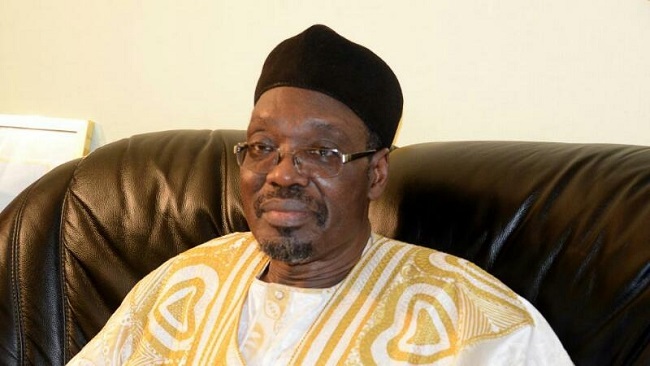





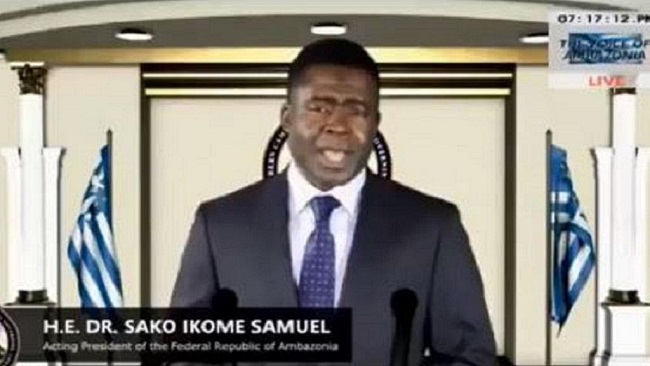
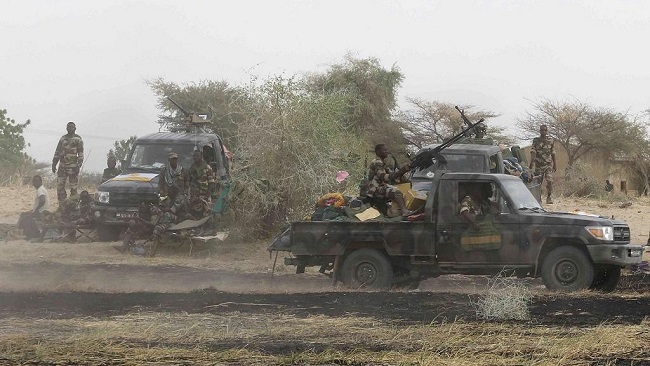
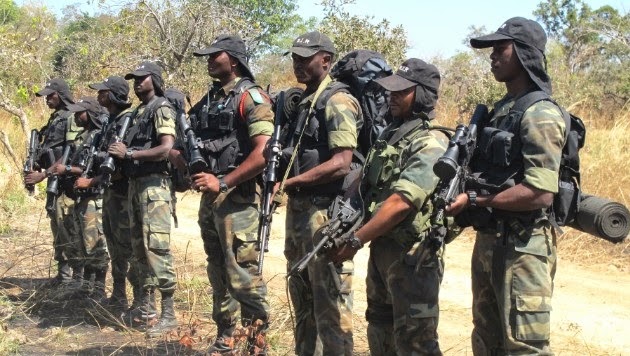
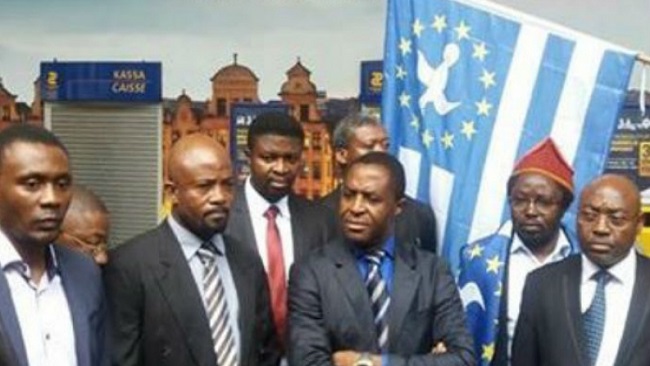
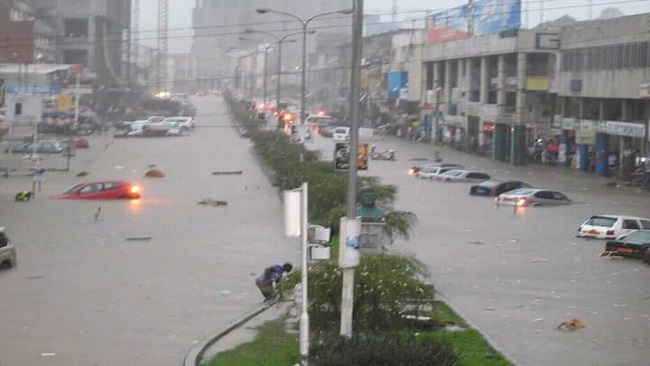












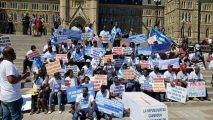
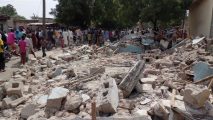



28, February 2018
Cameroon, Nigeria and unwanted headaches 0
Besieged by an unending campaign of terror by Boko Haram in the northeast, secessionist agitations in the southeast, and vicious attacks by suspected Fulani herdsmen in north central states and elsewhere, Nigeria is a country in need of an urgent reprieve.
Unfortunately, that reprieve seems to be more of a mirage than an actuality.
The theatre commander of the Nigerian troops fighting insurgents in the northeast recently claimed victory against a sect that has proved many times that it can reinvent itself to withstand the heat from the Nigerian troops.
Much like Nigeria, again, Cameroon’s major problem is no longer the insurgents that have killed about 25,000 people in both countries, according to SBM Intelligence estimate, the push for independence by its Anglophone region is now casting a blanket of violence on the country.
What began as a simple request for the use of the English Language in courtrooms and posting of English-speaking judges instead of French-speaking ones to the English-speaking region of the country has morphed into a movement that may compound Africa’s refugee troubles.
The separatists, on October 1, 2017, declared the northwest and southwest regions as the self-proclaimed ‘Republic of Ambazonia’. There is no need to seek an expert view to know that President Paul Biya, a man who has ruled Cameroon for more than 34 years, will haunt the separatists.
However, for Nigeria, which has its own internally displaced people to cater to, the influx of Cameroonians escaping from the violence in their country is another headache to a troubled head. Nevertheless, the situation would be a lot better if it remains just that.
With both countries sharing a 1,975km-long border, either side of which are violent crises, the possibility of the proliferation of small weapons is high. Also scary is the presence of fighters, trained, semi-trained or untrained, ready to handle these weapons.
Added to that is the penchant for Cameroonian troops to violate the sanctity of the Nigerian border. In recent months, the Cameroonian military have entered into Nigeria, chasing Anglophone secessionists, without prior permission from the Nigerian authorities. This is in spite of Nigerian authorities handing over 47 leaders of the separatist movement who were arrested in Abuja in January, even though Nigeria does not have a standing extradition agreement with its neighbour.
Besides, the crackdown on the separatists by the country’s military is creating a set of radicalised, maybe untrained, army who have become willing to fill the ranks of the Ambazonian Defence Forces (ADF).
Already, they have been launching attacks from Nigerian territory in recent weeks, aided significantly by a porous border.
“The truth is that many militants are hiding among the refugees, and they just cross the border at will through the forest,” Lawrence Asuquo, head of immigration at Ikom, told AFP.
“They launch attacks on the Cameroonian army and they run back to Nigeria. It’s almost impossible to track them.”
Apart from the security problems that Nigeria faces, there is also an economic dimension to the crisis.
Figures from Cameroon’s Ministry of Commerce show that Nigeria is the country’s largest trade partner, with 22 per cent and 17.8 per cent of imports coming from Nigeria in 2011 and 2012 respectively. Currently, annual trade exchanges are approximated to be worth ₦217 billion, excluding “the robust informal trade linkages on both sides of the almost 2000km border shared by both countries.”
However, if the crisis festers and Cameroon continues to violate the integrity of the Nigerian border, there is the likelihood that the trade volume, formal or informal, between the two countries would reduce drastically.
Both Nigeria and Cameroon are still reeling from the effect of Boko Haram insurgency. An unending separatist agitation is the last thing they need at this time.
Source: The Guardian